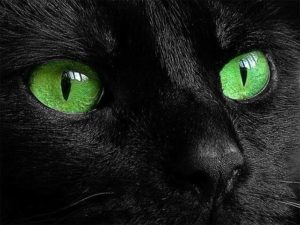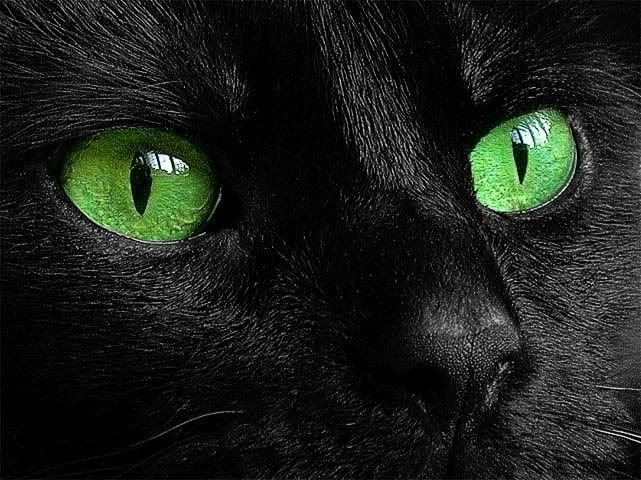Envy – The Green-Eyed Monster
Podcast: Play in new window | Download
Subscribe: RSS
 TITLE: Envy – The Green-Eyed Monster
TITLE: Envy – The Green-Eyed Monster
SUBJECT: Envy/Sin
PROPOSITION: In this lesson we will study the topic of envy through the story of Israel’s desiring a king and Saul’s envy of David.
OBJECTIVE: Each person should understand how envy progresses: It begins with comparisons, distorts reality, and destroys its victims.
AIM: I hope to impress upon each listener the truly diabolical nature of envy.
INTRODUCTION:
1. Read: James 3:14-16
2. About the Text:
1) Have you ever heard the expression, “Envy is a green-eyed monster”?
2) It’s a Shakespearean reference from the play Othello.
3) It has reference to cats who often have green eyes and like to play with what they destroy.
4) Envy is a lot like that.
5) James warns us about envy.
6) But what is envy, and how can it creep into our lives?
7) Let’s think about Envy: The Green-Eyed Monster.
3. The difference between envy and jealousy.
1) Envy is the desire for someone else’s attributes, traits, characteristics, relationships or possessions.
a. Envy has as its object a person.
b. Covetousness has as its object the thing itself.
2) Jealousy is the desire to preserve our own of the same against encroachers.
3) God is a jealous God because He loves His people and doesn’t want them going astray (Exodus 20:5).
4) But God is never envious because there is nothing anyone else has that He desires.
5) We frequently say jealousy when we mean envy.
4. Ref. to S, T, P, O, and A.
DISCUSSION:
I. Envy Begins with Comparisons (Read 1 Samuel 8:1-10).
1. Envy compares self with other people. (Give us a king to be like the nations around us).
1) Envy begins with observation of self and what self lacks.
2) It believes self is deficient in some, or many ways.
3) The ambitious are envious because they have a perception of what they lack.
4) The envious perceive in others what they seem to lack, and they desire it.
a. Qualities: Beauty, Intelligence, Affability, Acceptance.
b. Objects: Wealth, Possessions, Affluence.
c. The object of envy is always the person who has these things, not the things themselves, per se.
5) They don’t desire it because of the thing itself, but because they think the other is unworthy of it, and they so much more worthy of it; they deserve it.
6) Hence with envy there is a constant comparing of what others have with what the envious lack.
7) Ecclesiastes 4:4 – “Again, I saw that for all toil and every skillful work a man is envied by his neighbor. This also is vanity and grasping for the wind.”
2. Envy leverages justice/fairness to its cause. (Samuel’s sons were unjust.)
1) The greatest rationalization of envy is, “That’s not fair.”
2) It’s the idea that I deserve certain things that others have.
3) I deserve them because I am better than they are.
4) At the least, I should have the same as they; make us equal!
5) Envy doesn’t criminalize fairness, but it does exploit it.
6) It is often the case that the argument for fairness originates in a motive of envy.
3. Envy is a sin of the intellect.
1) It uses the intellect to raise false comparisons.
2) It uses the intellect to self-justify the desire of envy.
3) Envy uses the intellect to plot against others.
II. Envy Distorts Reality (Read 1 Samuel 8:11-22).
1. It builds a house of cards. (Things will be better with a king to fight our battles).
1) The intellect uses elaborate rationalizations to justify envy.
2) It takes mental effort to leverage fairness.
3) These efforts fuel a person’s pride so that his house of cards appears stable.
4) And this is all that he can see.
2. Envy does not see others for who they truly are. (Samuel’s warnings about what a king will do to the people).
1) It only sees in others what it wants to see relative to the objects of his envy.
2) Envy fails to appreciate the legitimate good that others do.
3) Envy fails to see the real problems that are part of another’s life.
4) Envy does not see behind the curtain of the stage on which its actors are placed.
5) Envy only sees the play that envy has written and the actors playing their part in its narrative.
6) It paints a much better picture of another’s life than what is really real.
7) Proverbs 23:17 – “Do not let your heart envy sinners, But be zealous for the fear of the Lord all the day;”
3. Envy does not see self for who it truly is.
1) Perhaps more diabolical is that envy fails to see the good things in one’s own life.
2) Envy sees only the failures, disappointments, problems, and shortcomings.
3) Envy cannot appreciate what is good in one’s own life.
4) Envy does not count its blessings.
5) Envy is not truly thankful.
6) Envy is blind to the acceptance of one’s friends and family.
7) Envy robs us of joy, peace, identity, mercy, grace, and love.
8) Love does not envy, and in envy there is no love – 1 Cor.13:4.
9) Proverbs 14:30 – “A sound heart is life to the body, But envy is rottenness to the bones.”
III. Envy Destroys Its Victims (Read 1 Samuel 18:6-30)
1. Envy places blame on others instead of self.
1) Envy does not want to see the truth about itself – it’s too horrible!
2) A lot of times envy is held so secretly that no one else knows.
3) No one would believe that the envious were envious.
4) The shame would be too much to bear!
5) This disallows correction.
6) The only move envy can make is to accuse others.
7) The envious person literally steps into the role of Satan, the accuser, himself.
8) Pride of being right must be justified! The envious deny their envy.
9) The truth is that everyone envies someone.
10) Galatians 5:26 – “Let us not become conceited, provoking one another, envying one another.”
2. Envy breeds mistrust, paranoia, and enmity.
1) Envy cannot see pure motives.
2) It only sees the narrative that it has laid out; its justification.
3) So envy mistrusts others.
4) When we mistrust others, we fear them—are paranoid about them.
5) And they become our enemies for what our envy tells us they will do against us.
6) 1 Timothy 6:3-4 “If anyone teaches otherwise and does not consent to wholesome words, even the words of our Lord Jesus Christ, and to the doctrine which accords with godliness, he is proud, knowing nothing, but is obsessed with disputes and arguments over words, from which come envy, strife, reviling, evil suspicions,”
3. Envy seeks to destroy that which it cannot have.
1) Envy cannot live with the one that is envied.
2) It must destroy his enemy, to get rid of the source of self-loathing.
3) It creates anger, wrath, and malice against those it envies.
4) It was for envy that Jesus was crucified.
5) Mark 15:10 – “For he perceived that it was out of envy that the chief priests had delivered him up.”
4. The object of our envy is not the only victim; the envier is a victim too.
1) King Saul destroyed himself because of his envy of David.
2) The Jews who crucified Jesus would ultimately rebel against Rome bringing the wrath of Titus upon the city of Jerusalem in 70 A.D.
3) Those who employ envy today will lead bitter, angry, cruel, lonely, and loveless lives.
5. “Do not rejoice when your enemy falls, And do not let your heart be glad when he stumbles” (Proverbs 24:17).
CONCLUSION:
1. Is it any wonder that Solomon writes, “Wrath is cruel, and anger is outrageous; but who is able to stand before envy?” (Proverbs 27:4).
2. Can you see why envy is the Green Eyed Monster? – It cruelly plays with its victims before it destroys them.
3. Read James 3:14-15
1) Envy begins with comparisons.
2) Envy distorts reality.
3) Envy destroys its victims.
4. Upon examining the inner life of sin, Paul wrote:
1) “O wretched man that I am! Who will deliver me from this body of death? I thank God—through Jesus Christ our Lord!” (Romans 7:24-25).
2) It takes an act of faith to move out of the thinking of envy and into the thinking of the Spirit.
3) Jesus will help us if we turn to Him.
5. Invitation

